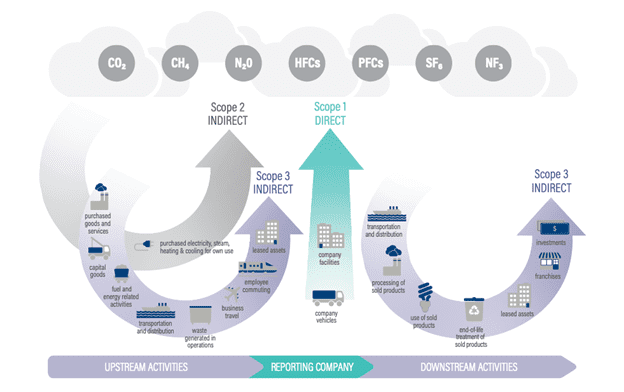A previous blog explored Corporate Social Responsibility (CSR) and the high importance both shoppers and employees put on the ability to align a company’s values and beliefs to their own. Retailers and CPG brands can use that strong desire to support like-minded businesses by developing CSR plans that resonate with their target audience, whether that’s a customer segment or a pool of key job candidates.
Ethical commerce touches many areas of our economy, from how we decarbonize our business operations to water conservation to responsible employment. Part of the alignment retailers can build with customers is to tap into their affinity for doing the right thing — such as recycling to reduce the negative impact on the environment or supporting minority-owned businesses, without demanding to make big changes in their lifestyle — be it routine, time or additional cost.
The need to fit easily into consumers’ lives is likely why businesses that reimagine the services their customers already know and love will be more successful in achieving CSR objectives while driving the bottom line. And using data to work backwards — beginning with a customer-obsessed perspective and crafting CSR campaigns with discrete steps that keep existing behaviors in mind — is key to tackling CSR.
Along with crafting a CSR strategy that enables and encourages customers to participate, retailers and Consumer Packaged Goods (CPG) companies need to regularly assess how well their efforts are reaching consumers and how effectively they’re moving the needle in their areas of focus.
Attributing CSR progress also relies heavily on data. If you can’t accurately and transparently report on your measures, it becomes a self-fulling prophecy of inefficiency. Boards can be accused of “greenwashing” — proclaiming lofty ambitions without enabling the businesses to materially move forward. Typically this happens when organizations invest more in marketing environmentally beneficial actions than investments to put them into practice.
How Can Data Help Move Your CSR Actions Forward?
Every CSR strategy is a journey, and while the first step may seem difficult, it doesn’t need to be. Using an approach that’s simple and iterative enables you to begin where you are, while always keeping your end goals in mind.
The Climate Pledge made by Amazon is a good example of keeping it simple. There are three principles:
- Principle 1: Regular reporting
- Principle 2: Carbon elimination
- Principle 3: Credible offsets
For full transparency, Amazon co-founded The Climate Pledge with Global Optimism. As of December 2021, 217 businesses have joined the pledge, with the goal to meet the Paris climate agreement by 2040 — 10 years ahead of schedule.
Looking at Principle 1, regular reporting is a data problem to solve. There are three entity carbon emission sources that feed into the AWS Carbon Footprint framework.

Scope 1: Direct carbon emissions from core business
Scope 2: Utilities to be used in day-to-day business operations
Scope 3: Both upstream and downstream emissions from transportation, etc.
Using the carbon footprint framework as an example, data is core to developing real-time dashboards for measuring, tracking and managing carbon footprints at the product, process and entity levels throughout the value chain. You can then transform activities into actionable metrics using proven, science-based approaches from certification organizations.
Having transparency around measure protocols across all three sources related to carbon impact and then putting in place meaningful improvements is key. Demonstrating progress against your CSR goals is also enabled by the information you gather. You can use data to show internal stakeholders that their hard work is paying off, and your customers can clearly see that you’re directing resources to areas that materially contribute to your CSR strategy.
For example, Bayer recently announced a new initiative called Project Carbonview, a supply chain carbon tracking application built on and powered by AWS. Bayer sought to track carbon emissions through the value chain from farmer to end purchaser of agricultural goods. This would increase visibility of Scope 3 emissions for companies purchasing crops for downstream processing and preserve emissions data across the supply chain’s various transition points.
The solution computes and captures crop carbon footprints through the supply chain, from growth to transportation and delivery. Supply chain partners now have more accurate and reliable data, and through incentivization as part of the Bayer Carbon Initiative, growers have better insight to drive adoption of climate-smart practices.
“Tomorrow’s strongest-performing businesses are likely to be the ‘Twin Transformers’ — companies that find new value at the intersection of digital technologies and sustainability. Powered by these twin engines of growth, they’re 2.5X more likely to outperform their peers.” Accenture, April 2021
Developing a Holistic CSR Strategy
CPG companies and retailers can also use data to break down the steps in joint efforts like reducing food waste and increasing recycling rates, as well as the value of each of those steps for customers. From there, key metrics allow stakeholders to track and measure progress. Blended into a holistic CSR plan, the right data strategy gives brands a way to engage customer segments that may not feel a strong commitment to CSR efforts. By offering clear, concise and simple steps, you can empower them more fully to participate in your program and its individual campaigns.
AWS is uniquely positioned to help retailers and CPGs leverage data analytics and other powerful tools to maintain transparency around CSR actions and outcomes, and to measure and improve progress on their CSR strategies. From ordering 100,000 Rivian electric delivery vehicles to removing 1 million tons of packaging, Amazon is deeply committed to developing global communities passionate about solving CSR issues.
Contact your local AWS rep who can help you apply our technology expertise to support your tailored CSR journey.
Robyn Hill leads Amazon Web Services’ Retail & CPG strategy in Asia Pacific, where she focuses on thought leadership, strategy and partnering with customers across the region. Hill has over 18 years of CPG, Retail, and Data Analytics experience spanning merchant buying, category management, product development, analytical consulting and executive leadership. Previously, Hill was an executive at Quantium within the Fast Moving Consumer Goods consulting practice, and has held category management roles at Coles, where she focused on the Health, Beauty, and Baby segments. Prior to Coles, Hill was Group Category Development Manager for L’Oreal Australia’s Consumer Products Division, and has held various sales and category roles within Unilever in both Australia and South Africa.




